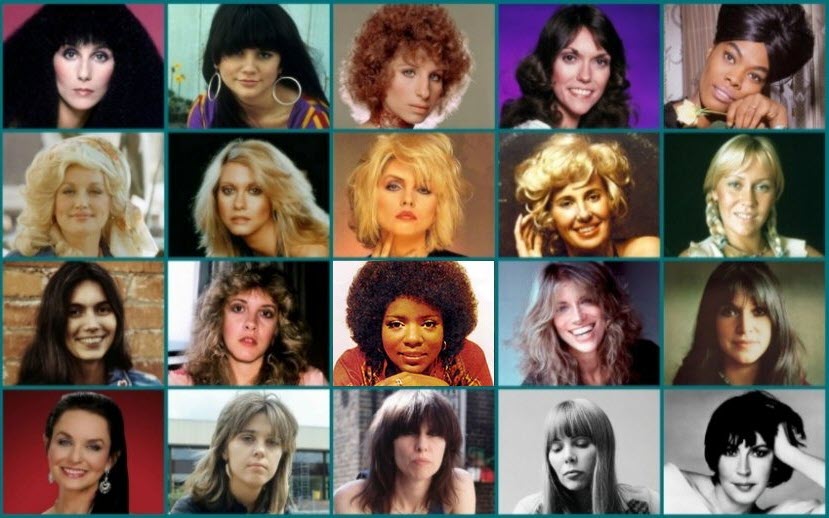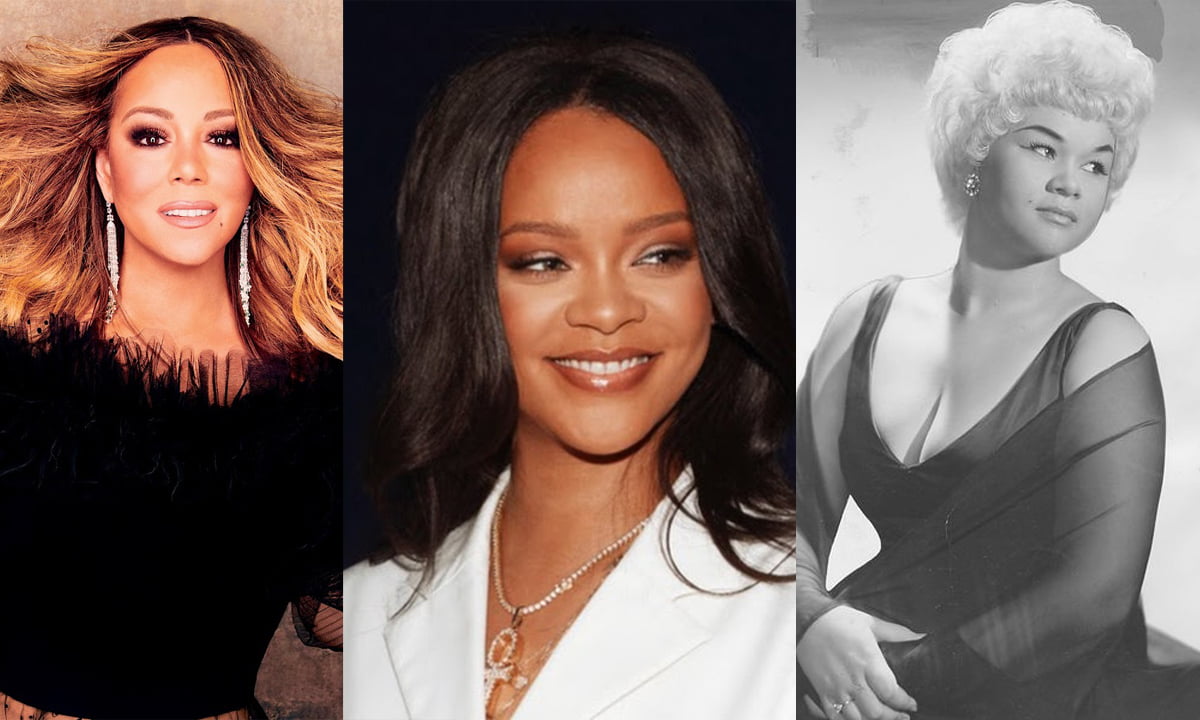Black Female Singers Of The '60s And '70s: Celebrating The Voices That Changed Music Forever
When you think about the '60s and '70s, music was more than just entertainment—it was a movement. Black female singers of the '60s and '70s played an essential role in shaping the cultural landscape of those decades. Their voices weren’t just melodies; they were anthems of empowerment, resilience, and change. These women broke barriers, challenged norms, and left an indelible mark on the music industry. So, let’s dive into the world of these incredible artists who redefined what it meant to be a Black woman in music.
Imagine a time when segregation was still a reality, and opportunities for Black artists were limited. Yet, these trailblazers didn’t let societal constraints silence them. They used their talent as a weapon to fight injustice and inspire millions around the globe. From soulful ballads to funky rhythms, their music resonated with people from all walks of life. It wasn’t just about singing—it was about storytelling, activism, and paving the way for future generations.
This article isn’t just about listing some names or dates. It’s about celebrating the legacy of Black female singers of the '60s and '70s whose contributions have been woven into the fabric of modern music. Whether you’re a die-hard fan or someone curious to learn more, this deep dive will take you through their journeys, challenges, and triumphs. Let’s get started!
Read also:Discover The World Of Yumi Fan Insights Biography And More
Table of Contents
- Biography: Who Were These Incredible Women?
- The Influence of Black Female Singers in the '60s and '70s
- Key Artists: The Icons You Need to Know
- Exploring the Music Genres They Dominated
- Cultural Impact: Beyond the Charts
- Challenges Faced by Black Female Singers
- The Lasting Legacy of Black Female Singers
- Awards and Recognition: Honoring Their Achievements
- Modern Influence: How They Shaped Today’s Music
- Conclusion: Celebrating Their Contributions
Biography: Who Were These Incredible Women?
Before we dive into their achievements, let’s talk about the women behind the music. Black female singers of the '60s and '70s weren’t just artists—they were pioneers. Below is a glimpse into their backgrounds:
Early Lives and Upbringing
Many of these women grew up in environments that nurtured their love for music. Churches, community gatherings, and family traditions played a significant role in shaping their early musical experiences. For example, Aretha Franklin was surrounded by gospel music from a young age, thanks to her father’s church sermons. Similarly, Diana Ross was part of a close-knit family that encouraged her to pursue her dreams.
Breakthrough Moments
Each of these artists had a defining moment that launched them into the spotlight. For some, it was a hit single; for others, it was joining a legendary band. Take Tina Turner, for instance. Her collaboration with Ike Turner in the Ike & Tina Turner Revue catapulted her into stardom. Meanwhile, Gladys Knight’s partnership with the Pips brought soulful harmonies to the forefront of the music scene.
Data and Biodata
| Name | Birth Year | Hometown | Genre |
|---|---|---|---|
| Aretha Franklin | 1942 | Memphis, Tennessee | Soul, R&B |
| Diana Ross | 1944 | Detroit, Michigan | Pop, R&B |
| Tina Turner | 1939 | Nutbush, Tennessee | Rock, Soul |
| Gladys Knight | 1944 | Atlanta, Georgia | Soul, R&B |
The Influence of Black Female Singers in the '60s and '70s
These women didn’t just sing—they revolutionized the music industry. Their influence extended far beyond the charts. Here’s how they left their mark:
Empowering Women
Black female singers of the '60s and '70s became symbols of female empowerment. Songs like Aretha Franklin’s “Respect” became anthems for women demanding equality and respect in both personal and professional spheres. Their music gave voice to the struggles and triumphs of women everywhere.
Crossing Racial Barriers
During a time when racial tensions were high, these artists used their platform to promote unity and understanding. They performed for diverse audiences and collaborated with artists of all backgrounds. Their music transcended racial boundaries, proving that art has the power to bring people together.
Read also:Discover The Impact Of Humane Society Miami A Beacon Of Hope For Animals
Key Artists: The Icons You Need to Know
Let’s shine a spotlight on some of the most iconic Black female singers of the '60s and '70s:
- Aretha Franklin: Known as the Queen of Soul, her powerful voice and emotional performances made her a household name.
- Diana Ross: As the lead singer of The Supremes and later a solo artist, she became a global superstar with hits like “Ain’t No Mountain High Enough.”
- Tina Turner: The Queen of Rock ‘n’ Roll electrified audiences with her dynamic performances and unforgettable energy.
- Gladys Knight: Her rich, soulful voice and timeless hits like “Midnight Train to Georgia” cemented her place in music history.
Exploring the Music Genres They Dominated
From soul to funk, these women mastered a variety of genres. Their versatility allowed them to connect with audiences across different demographics. Here’s a breakdown of the genres they excelled in:
Soul Music
Soul music was a defining genre of the era, and Black female singers were at the forefront. Their ability to convey raw emotion through their voices made soul music resonate deeply with listeners. Artists like Aretha Franklin and Gladys Knight became synonymous with the genre.
Funk and R&B
Funk and R&B provided the perfect backdrop for Black female singers to showcase their talent. The groovy rhythms and intricate melodies allowed them to experiment with their sound while staying true to their roots.
Cultural Impact: Beyond the Charts
The impact of Black female singers of the '60s and '70s extended beyond the music industry. They influenced fashion, film, and even politics. Their presence on stage and screen challenged stereotypes and paved the way for greater representation in media.
Fashion Icons
These women weren’t just known for their voices—they were style icons. Diana Ross’s glamorous outfits and Tina Turner’s bold, edgy looks set trends that are still admired today.
Activism and Advocacy
Many of these artists were actively involved in civil rights movements. They used their platform to advocate for equality and justice, inspiring countless others to join the fight for change.
Challenges Faced by Black Female Singers
Despite their success, these women faced numerous challenges. Racial discrimination, gender bias, and industry exploitation were just a few of the hurdles they encountered. However, their resilience and determination allowed them to overcome these obstacles and thrive.
Racial Discrimination
In a predominantly white industry, Black female singers often faced discrimination and prejudice. They had to work twice as hard to prove their worth and gain recognition for their talent.
Gender Bias
As women in a male-dominated industry, they also battled gender bias. Their contributions were often undervalued, and they had to fight for equal opportunities and fair treatment.
The Lasting Legacy of Black Female Singers
The legacy of Black female singers of the '60s and '70s continues to inspire new generations of artists. Their influence can be seen in the work of contemporary musicians who draw from their rich musical heritage.
Impact on Modern Artists
Artists like Beyoncé, Alicia Keys, and H.E.R. have cited these women as major influences on their careers. Their music carries the torch of empowerment and authenticity passed down by their predecessors.
Continued Relevance
Even today, the music of these legendary artists remains relevant. Their timeless classics continue to resonate with audiences, reminding us of the power of music to transcend time and space.
Awards and Recognition: Honoring Their Achievements
The contributions of Black female singers of the '60s and '70s have been recognized with numerous awards and honors. Here are just a few examples:
- Aretha Franklin was awarded the Presidential Medal of Freedom in 2005.
- Diana Ross has been inducted into the Rock and Roll Hall of Fame twice—once as a member of The Supremes and once as a solo artist.
- Tina Turner received a Grammy Lifetime Achievement Award in 2018.
Modern Influence: How They Shaped Today’s Music
The influence of Black female singers of the '60s and '70s can be seen in every corner of the modern music industry. Their contributions have paved the way for a more inclusive and diverse musical landscape. Today’s artists owe a debt of gratitude to these trailblazers who dared to dream big and change the world with their voices.
Conclusion: Celebrating Their Contributions
Black female singers of the '60s and '70s weren’t just musicians—they were revolutionaries. Their music, activism, and resilience have left an indelible mark on the world. As we celebrate their contributions, let’s remember the lessons they taught us about empowerment, equality, and the power of art to bring about change.
So, what’s next? Share this article with a friend, leave a comment, or explore more content on our site. Together, let’s keep the legacy of these incredible women alive and thriving for generations to come!


